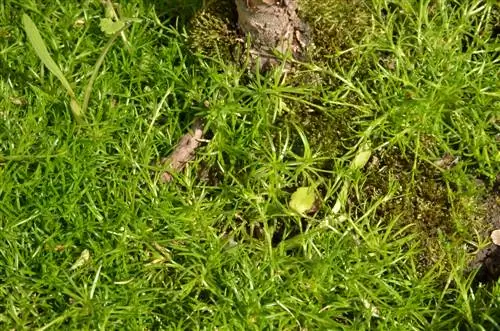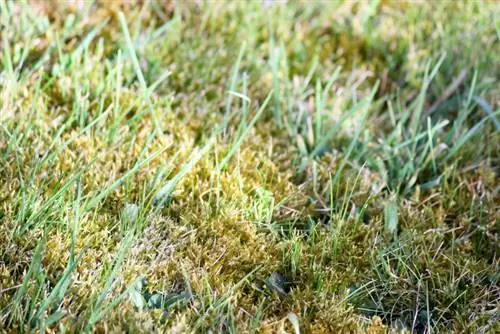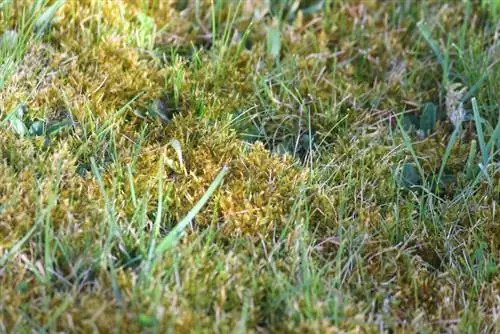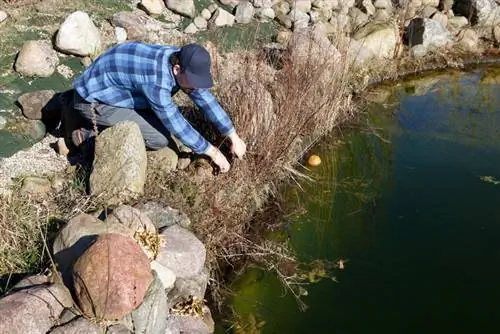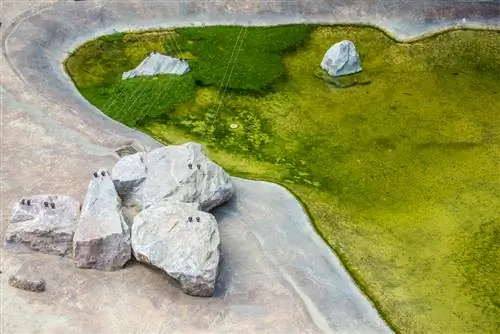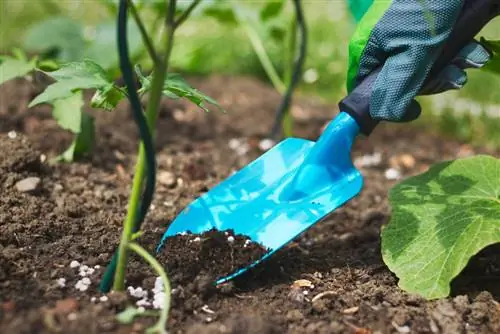- Author admin leonars@hobbygardeners.com.
- Public 2023-12-16 16:46.
- Last modified 2025-01-23 11:21.
If the lawn has become a pure carpet of moss, iron sulfate is usually recommended to combat it. The iron sulfate is added to the lawn as an additive to the fertilizer and destroys the moss there. However, the use of iron sulfate against moss is not entirely harmless.
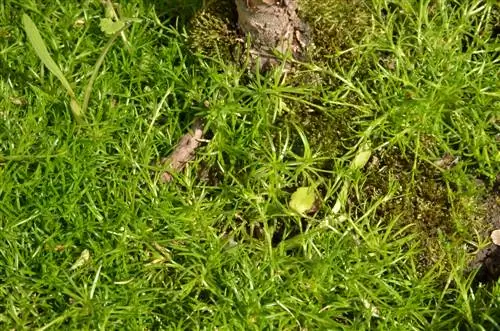
How do you use iron sulfate against moss?
Iron sulfate is used in spring or autumn by dissolving it in irrigation water or sprinkling it evenly over damp lawns as a solid s alt. After treatment, you should not walk on the lawn for at least two days and keep pets and children away. Dead moss can then be raked away.
Use iron sulfate against moss
Iron sulfate is widely considered to be the “remedy” against moss in the lawn. In fact, iron sulfate causes the moss to die and prevents new moss areas from forming.
Nevertheless, the garden owner should be aware that iron sulfate is corrosive, although not directly toxic. This can damage other plants next to the lawn. Applying iron sulfate to combat moss is also not necessarily the best solution for the soil.
Only suitable for lawns
You can only use iron sulfate to remove moss from your lawn. The product is not suitable for other areas of application such as moss on walls, exposed concrete slabs, roofs or garden furniture.
These materials would be burned by the iron sulfate and thus become stained and unsightly.
How to use iron sulfate against moss
- Application in spring
- wait for wet weather
- alternatively, sprinkle the lawn beforehand
- Dissolve iron sulfate in irrigation water
- Treat lawn evenly
- alternatively use solid s alt
- sprinkle evenly
- Water the lawn afterwards
- Do not walk on the lawn for at least two days
- Keep away from pets and children
- rake away dead moss
For heavily infested lawns, you should first pull a large part of the moss out of the ground with a rake.
A second application in August or September is possible if there is a very heavy moss infestation.
Alternatives to combat moss in the lawn
Whenever possible, you should avoid using chemicals in the garden. It is better to scarify the lawn in spring than fighting moss with iron sulfate. This is more work, but it is very beneficial to the he alth of the garden.
Prevention is better than fighting
Moss grows on lawns that are very shady and damp or that are not adequately maintained. The best prevention against moss is therefore very good lawn care.
This includes regular fertilization. The soil should be well loose so that no waterlogging can occur. In summer, if possible, only water until midday so that the lawn can dry out better by the evening.
Mow the lawn regularly. On shady areas, the grass length should be kept slightly longer than on sunny areas.
Precautions when using ferrous sulfate
Iron sulfate has a corrosive effect. This means that you must ensure that neither liquid nor s alts get directly onto your bare skin or even into your eyes. Wearing safety glasses (€7.00 on Amazon) is advisable, as is wearing gloves that are resistant to chemicals.
Tip
Limetic nitrogen is a good prevention against moss in the lawn. The fertilizer ensures dense green lawns in which moss has no room.

